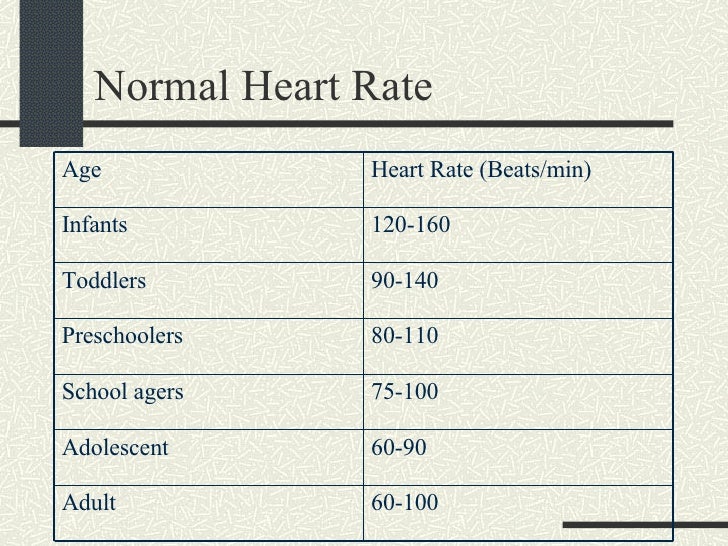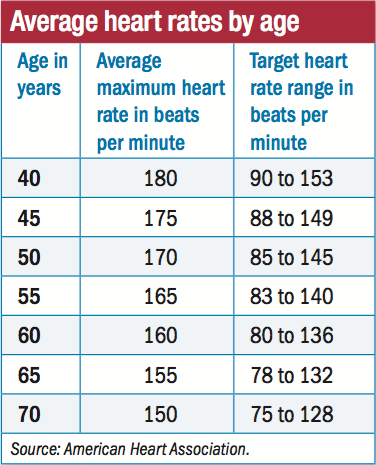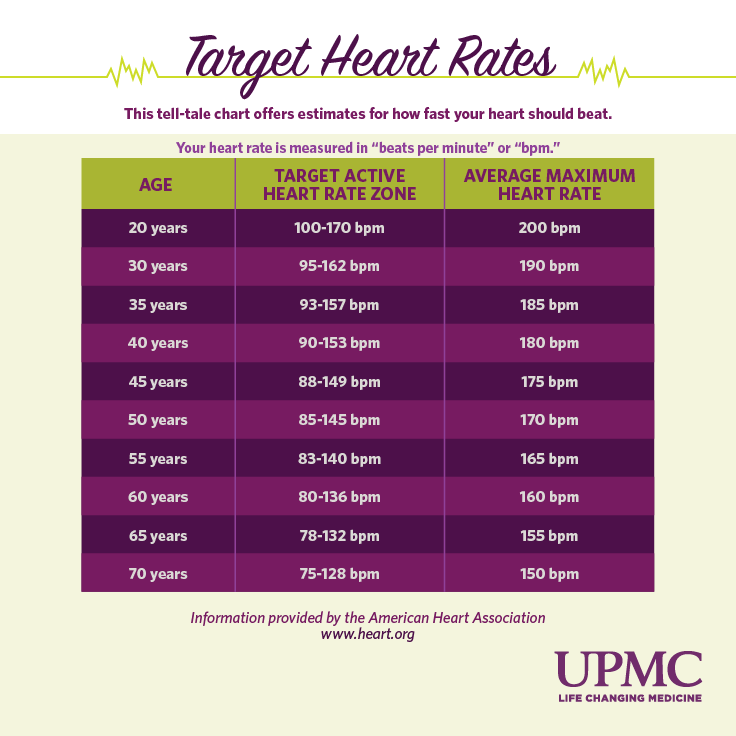


A normal resting heart rate for adults ranges from 60 to 100 beats a minute. A heart rate above or below that may signal a problem.



What should you know about your heart rate? Even if you’re not an athlete, knowledge about your heart rate can help you monitor your fitness level — and it might even help you spot developing health problems. Your heart rate, or pulse, is the number of times your heart beats per minute. Normal
On this page, the calculator permits the user to determine heart rate for diagnosis of tachycardia and bradycardia.
While heart rhythm is regulated entirely by the sinoatrial node under normal conditions, heart rate is regulated by sympathetic and parasympathetic input to the sinoatrial node.
By the beginning of the ninth week of pregnancy, the normal fetal heart rate is an average of 175 bpm. At this point, it begins a rapid deceleration to the normal fetal heart rate for mid-pregnancy to about 120 to 180 bpm.
When someone refers to resting pulse rate, it often means the rate at which the heart beats when the body is at rest. Resting pulse rates within a normal


What is an Adults Normal Resting Heart Rate? The resting heart rate (RHR) is simply the number of times your heart beats in a minute when your body is completely at rest.
Fetal heart rate is not constant throughout pregnancy. It changes according to the stages of pregnancy. Take a look at the normal fetal heart rate chart presented in this article and be assured about the health of your baby.
Cardiologist Answers “What is a Normal Heart Rate?”. Learn How to Easily Find Out if Your Resting Heart Rate is Low, High, or Normal.
The normal pulse rate for s can vary depending on the ’s age and size. The resting heart rates of small s and puppies are faster than the heart rates of large or adult s. Puppies can have resting pulse rates of 160 to 200 beats per minutes when they are born, which can go as high as

